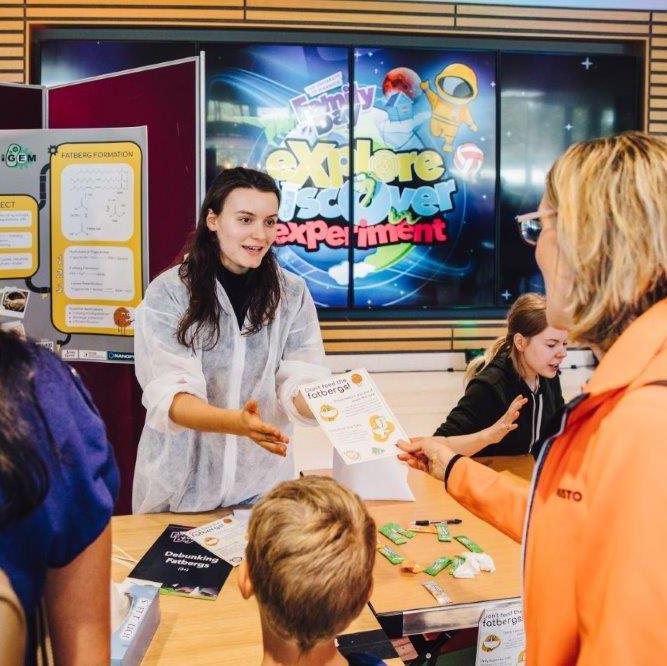
3 minute read
III. WIE Building Capacity and Expertise for Engaging with the Public
WIE BUILDING CAPACITY AND EXPERTISE FOR ENGAGING WITH THE PUBLIC
The Institute recognises that public engagement skills can be very different from those traditionally picked up by people working within a university, whether in an academic or professional services role, or indeed as a student. As such, we recognise that we need to be proactive in helping our staff and students develop the skills required to engage successfully with the wider public and with our communities, in order for them to then be able to make the most of the opportunities the Institute, and the wider university, provide to do so. We do this in a number of different ways as outlined below, with the Institute Core team working to develop the Institute’s own coherent system of Public and Community Engagement training (the WIE Skills Festival) for staff and students (both Undergraduate and Postgraduate), as well as contributing to established staff training schemes and student skills and careers fairs.
Advertisement
The Institute is also dedicated to embedding public engagement as part of the taught experience of students at Warwick. We believe that thinking and discussing about public engagement, as well as learning the skills to do it effectively, are an important part of student learning in every discipline, and an important skill set to take forward into every type of career. As such, the Institute runs its own Undergraduate public engagement module through IATL (more on this below), and works closely with departments and faculties, as well as with WIHEA and ADC (Academic Development Centre), to develop public engagement teaching and assessment as part of the regular taught curriculum. The Institute also works closely with the Student Opportunity Team within the university to expand the current Undergraduate Research Scholarship Scheme (URSS) to include public engagement. As you can read about more below, this opportunity was enthusiastically taken up in 20-21 when it was piloted, with the result that, for the first time, in 21-22, students have the option of URSS projects which are entirely focused on public engagement.
A crucial part of building capacity and expertise is rewarding great practice and achievement. This is in part achieved for staff of course through the university promotions framework, with the Institute, through one of its Learning Circles, now supporting candidates especially with their Impact, Outreach and Engagement cases for promotion. But the Institute has also moved to create a new university-wide award for both staff and students to recognise and celebrate great public and community engagement: the Warwick Award for Public and Community Engagement (WAPCE), which you can read more about below.
All our efforts to build capacity and expertise, as well as recognise skill and achievement, would be impossible without the combined expertise of our Institute Core Team and wider Fellowship through our Learning Circles. The WIE Academic Director, Associate Academic Director and Naomi Kay as Engagement Officer with responsibility for building capacity and expertise programmes, work closely with a number of Learning Circles focused on staff training, student involvement in public engagement, the Pedagogy of public engagement, as well as Promotions and public engagement, to develop best practices standards for our training and to support both staff and students across the university. And not only just within the university. Two of our Learning Circles are actively involved in the EUTOPIA network and Warwick is swiftly emerging as a leader in public and community engagement, collaboration, and co-production (better known on the continent as ‘citizen science’), delivering training sessions to the entire EUTOPIA (and UNICA) European university networks on these topics.
This is a crucial part of the way in which the Institute – as a pan-university hub – not only enables the achievement of the university’s 2030 Strategic goals and the delivery of real value to our international networks, but also delivers for the university’s Knowledge Exchange-Concordat action plan; how we continue to ensure in the long term that we retain our strong top 10% position in the Government’s Knowledge Exchange Framework; as well as how we grow our pool of researchers comfortable with public engagement as part of our future REF Impact case-study pipeline. And in terms of our students, it is an important part of how we ensure we continue to prepare students with the skills they will need for careers in the 21st century.








